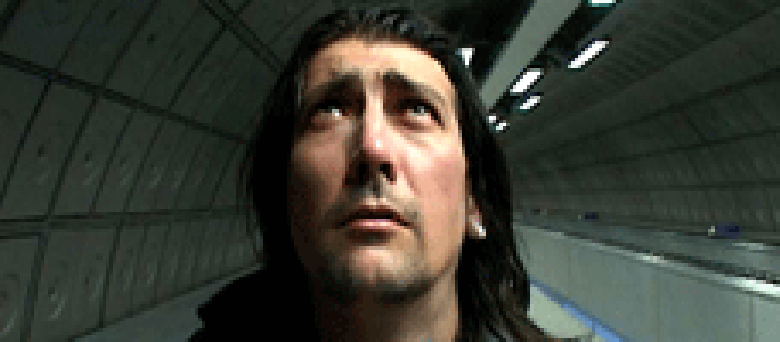Credits
Feature by: Tom Huddleston
Posted on: 20 August 2007
Related articles:
Features: Dark Myths: Three Documentaries By Richard Stanley
Reviews: Dust Devil (by Tom)
Reviews: Dust Devil (by Rumsey)
Richard Stanley’s strange and tortuous career seems in many ways to typify the erratic trajectory of an artistically inclined genre director struggling on the fringes of the mainstream. His edgy, self-serious but steadfastly entertaining apocalyptic narratives resist easy categorisation, as do his playful, shambolic documentaries. His eccentric manner and idiosyncratic mode of dress have surely marked him as an outsider to those in power, and for the past decade he has been scratching out a living on the outer reaches of the industry.
Perhaps Stanley’s most appealing trait as an artist is his unwillingness to compromise. The man himself would most likely argue the opposite, viewing both his completed feature films – Hardware and Dust Devil – as crippled by concession. But in comparison to many of his apparent contemporaries—Russell Mulcahy, say, or George Miller, both of who began their careers with rather outré genre pictures before escaping to Hollywood and relative blandness, Stanley has remained surprisingly committed to his singular vision. His experience on the disastrous The Island of Doctor Moreau is telling: where many a director would have eagerly signalled his willingness to compromise with the suits, Stanley instead chose dismissal—whether by design or default is largely irrelevant. And he has never succumbed to the lure of the easy DTV paycheck; there’s no Piranha sequels lurking in his filmography, though by his own assertion Hardware sometimes comes close.
In fact, despite his devotion to horror as a genre and his willing acceptance of populist monster narratives (robots, serial killers), as a director Stanley remains closer in both style and personality to great 20th century mavericks like Donald Cammell, Peter Watkins and Alex Cox (though, as he readily attests, he is yet to make the unqualified masterpiece each of those directors has achieved). The influence of the avant garde and especially the 1960’s is never far from the surface in his work—Hardware features a wild, outrageously incongruous acid trip sequence, and Dust Devil has far more in common with Zabriskie Point than its ostensible close relative, The Hitcher.
In a modern context, Richard Stanley feels like one of the last of a dying breed, an incisive, inquisitive mind committed to a genre increasingly dominated by conformity and dumb thrills. His visual sense is infinitely more developed than the majority of modern horror filmmakers—there’s not much call for epic helicopter shots in your average dirty low budget slice and dice. Stanley is currently trying to raise funding for a pair of violent, mid-budget political thrillers, one of which, Vacation, looks set to star Bruce Campbell, a match surely made in geek heaven. Let anyone who longs for a more challenging genre experience, a horror film with layers and depth and social intelligence, keep their fingers crossed now…
We don’t do comments anymore, but you may contact us here or find us on Twitter or Facebook.



